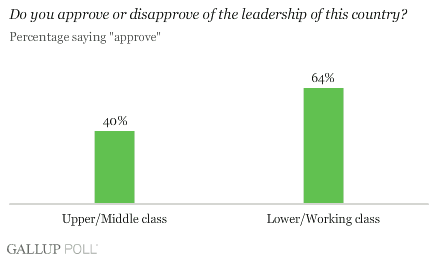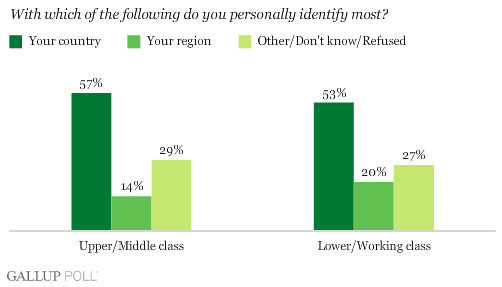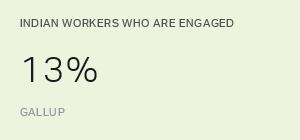WASHINGTON, D.C. -- Bolivia's President Evo Morales approved a recall referendum for himself and Bolivia's nine prefects last week, saying he "does not fear the voters." Gallup Poll data collected in May 2007 indicate that Morales did enjoy strong support among the country's poor.

However, local pollsters confirm opposition leaders' claims that the president's support has eroded significantly over the past 12 months amid a divisive political struggle over Morales' proposed constitutional overhaul. Morales' success in the recall referendum will depend on his ability to hold on to the support of the lower socioeconomic classes, who represent the majority of Bolivians, by delivering on his promises to empower them politically and economically.
The challenge is to do so in ways that do not sacrifice economic growth or further alienate local and foreign investors, who have grown increasingly wary of government policy. Morales seeks agrarian reforms that many in the country's wealthy eastern lowlands believe would threaten the interests of landowners in the region. Four eastern provinces have responded by seeking autonomy from the central government. On May 4, Santa Cruz held a referendum in which residents overwhelmingly endorsed regional autonomy, but Morales quickly dismissed the vote as illegal.
Given residents' frustration with the central government, would the eastern provinces go so far as to secede from Bolivia altogether? There are indications that this is unlikely. Though Santa Cruz voters decisively approved of the autonomy statutes, there was widespread abstention, suggesting that many are uncomfortable with the growing conflict with La Paz. What's more, Gallup's 2007 data indicate that despite the push for autonomy, Bolivia's upper- and middle-class residents (57%) were at least as likely as their lower- and working-class counterparts (53%) to say they identified most strongly with their country rather than their region.

Survey Methods
Results are based on face-to-face interviews with 1,000 Bolivians, aged 15 and older, conducted June-July 2007. For results based on the total sample of national adults, one can say with 95% confidence that the maximum margin of sampling error is ±3 percentage points. In addition to sampling error, question wording and practical difficulties in conducting surveys can introduce error or bias into the findings of public opinion polls.